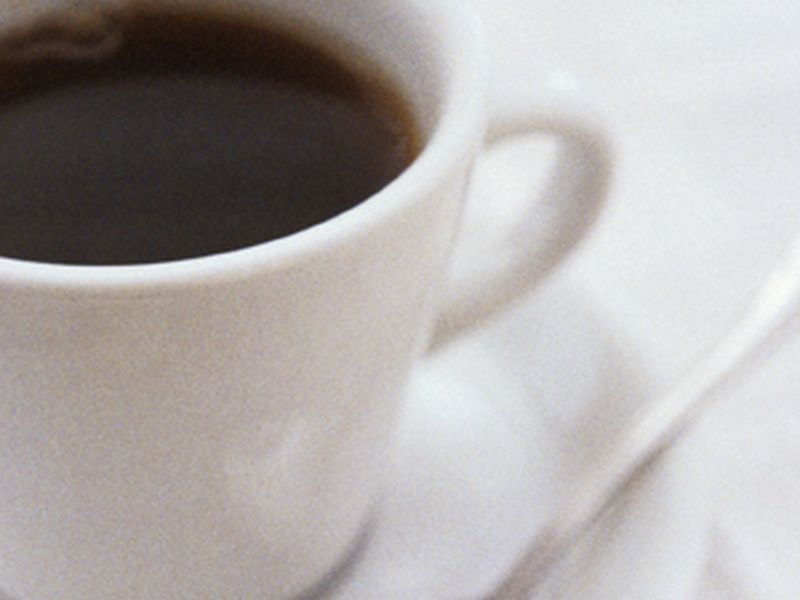
Tuesday, January 26, 2016

TUESDAY, Jan. 26, 2016 (HealthDay News) -- There may be good news for coffee, tea and chocolate lovers: Regular caffeine consumption may not cause dangerous racing of the heart, a new study finds.
The finding challenges current medical thinking, the study authors said.
However, the health risks of heavy caffeine consumption requires additional research, the researchers added.
"Clinical recommendations advising against the regular consumption of caffeinated products to prevent disturbances of the heart's cardiac rhythm should be reconsidered, as we may unnecessarily be discouraging consumption of items like chocolate, coffee and tea that might actually have cardiovascular benefits," said study senior author Dr. Gregory Marcus. He is director of clinical research in the division of cardiology at the University of California, San Francisco (UCSF).
"Given our recent work demonstrating that extra heartbeats can be dangerous, this finding is especially relevant," Marcus added. In rare cases, extra heartbeats can lead to heart problems and stroke, the researchers said in a university news release.
The 12-month study included nearly 1,400 healthy people whose coffee, tea and chocolate consumption was assessed. They also wore a portable device that continuously monitored their heart rhythm for 24 hours.
Sixty-one percent of the participants consumed more than one of the caffeinated products a day. Those who consumed higher amounts of the products didn't have extra heartbeats, the study found.
"This was the first community-based sample to look at the impact of caffeine on extra heartbeats, as previous studies looked at people with known [heart rhythm disorders]," study lead author Shalini Dixit, a fourth-year medical student at UCSF, said in the news release.
"Whether acute consumption of these caffeinated products affects extra heartbeats requires further study," Dixit added.
The study was published in the January issue of the Journal of the American Heart Association.
SOURCE: University of California, San Francisco, news release, Jan. 26, 2016
HealthDay
Copyright (c) 2016 HealthDay. All rights reserved.
- More Health News on:
- Caffeine









































No hay comentarios:
Publicar un comentario